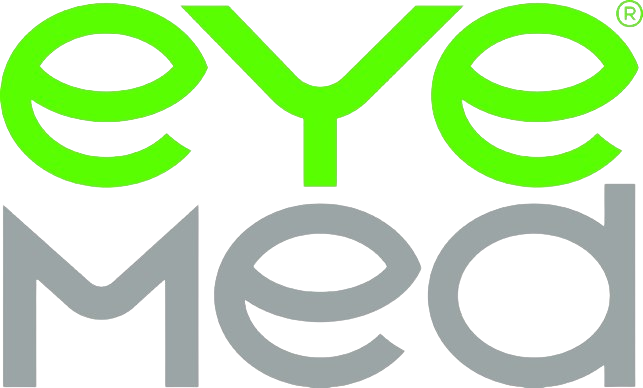LASIK Eye Surgery & Insurance
Does Insurance Cover LASIK Eye Surgery?

LASIK Eye Surgery With Insurance
Is LASIK Covered by Insurance?
Generally, LASIK eye surgery is not included in standard insurance plans because it’s viewed as an elective or cosmetic procedure. Most insurance policies, whether they are health or vision-based, do not cover the entire expense of LASIK surgery. Despite this, some insurance companies acknowledge the transformative impact of LASIK and provide notable discounts for the procedure. We have established partnerships with certain vision insurance providers to facilitate easier access to these discounts, assisting you in leveraging your benefits effectively for LASIK surgery.

What is LASIK.com
The Respected Source on LASIK Eye Surgery for Doctors and Patients
LASIK.com is the comprehensive resource for reliable information about Modern LASIK and laser vision correction. Our goal is to empower patients to achieve clearer vision and a better quality of life. We take pride in our network of certified LASIK doctors and vision centers—making it easy for you to find trusted providers near you.
LASIK Eye Surgery Insurance Discounts
Does Your Vision and Health Provider Cover LASIK Eye Surgery?
Typically the only organizations with medical insurance plans that cover LASIK eye surgery are specialty unions that self-insure and dedicate monthly premium dollars to the insurance fund. However, find out if your insurance provider offers a LASIK Eye Surgery discount below.

Does United Healthcare Cover LASIK?

Does Aetna Cover LASIK Eye Surgery?

Does VSP Cover LASIK Eye Surgery?

Does Anthem Cover LASIK Eye Surgery?

Does EyeMed Cover LASIK Eye Surgery?

Does DavisVision Cover LASIK Eye Surgery?

Does Humana Cover LASIK Eye Surgery?

Does Cigna Cover LASIK Eye Surgery?

Does Blue365 Cover LASIK Eye Surgery?
LASIK Insurance COVERAGE explained
Why Don’t Insurance Companies Cover LASIK?
Insurance companies typically don’t cover LASIK surgeries because it’s considered an elective procedure. Elective procedures are those that are not medically necessary but are performed at the patient’s request, often for cosmetic or quality-of-life reasons.
- Not Medically Necessary: Insurance plans usually cover treatments that are deemed medically necessary — that is, treatments for conditions that affect your health or are necessary to improve or maintain your health. LASIK is primarily performed to correct vision for convenience or cosmetic reasons, rather than for treating a health-threatening condition.
- Cosmetic Nature: Many insurance companies categorize LASIK as a cosmetic procedure. Since it’s often used to eliminate the need for glasses or contact lenses, it’s viewed as a lifestyle choice rather than a medical necessity.
- Cost Considerations: LASIK can be a costly procedure, and covering it would likely increase insurance premiums. Insurance companies often exclude costly elective procedures to keep premiums affordable for the majority of their policyholders.
- Alternative Treatments Available: Glasses and contact lenses are effective, less expensive alternatives for vision correction. Since these alternatives exist and are covered by many insurance plans, insurance companies don’t feel the need to cover the cost of LASIK.
- Procedure Risk and Variability: While LASIK is generally safe, like any surgical procedure, it carries some risks. Additionally, the success of the procedure can vary from person to person. Insurance companies might be hesitant to cover a procedure with variable outcomes.
It’s important to check with your specific insurance provider for their policies, as there can be exceptions. Some plans might offer partial coverage, discounts, or coverage under certain conditions. Additionally, some employers offer Health Savings Accounts (HSAs) or Flexible Spending Accounts (FSAs), which can be used to save for and pay for LASIK using pre-tax dollars.
LASIK with insurance cost
LASIK Eye Surgery Cost With Insurance
When considering LASIK eye surgery with insurance coverage, it’s important to note the following key points:
Typical Insurance Coverage: LASIK is generally classified as an elective or cosmetic procedure. Most standard health insurance policies do not cover LASIK surgery. However, there are exceptions, and coverage may vary depending on the specifics of your insurance plan.
- Special Circumstances for Coverage: Some insurance plans might cover LASIK if it’s deemed medically necessary. For example, if contact lenses and glasses are not viable options due to a medical condition, insurance might cover the procedure. But such cases are rare.
- Discounts Through Insurance Plans: While direct coverage for LASIK might not be available, some insurance plans offer discounts on LASIK through specific partnerships with eye care centers. These discounts can vary, so it’s important to check with your insurance provider.
- Vision or Health Savings Accounts: If you have a Flexible Spending Account (FSA) or Health Savings Account (HSA), you can often use these funds to pay for LASIK, which can effectively act as a cost-saving measure.
It’s important to check with your specific insurance provider for their policies, as there can be exceptions. Some plans might offer partial coverage, discounts, or coverage under certain conditions. Additionally, some employers offer Health Savings Accounts (HSAs) or Flexible Spending Accounts (FSAs), which can be used to save for and pay for LASIK using pre-tax dollars.